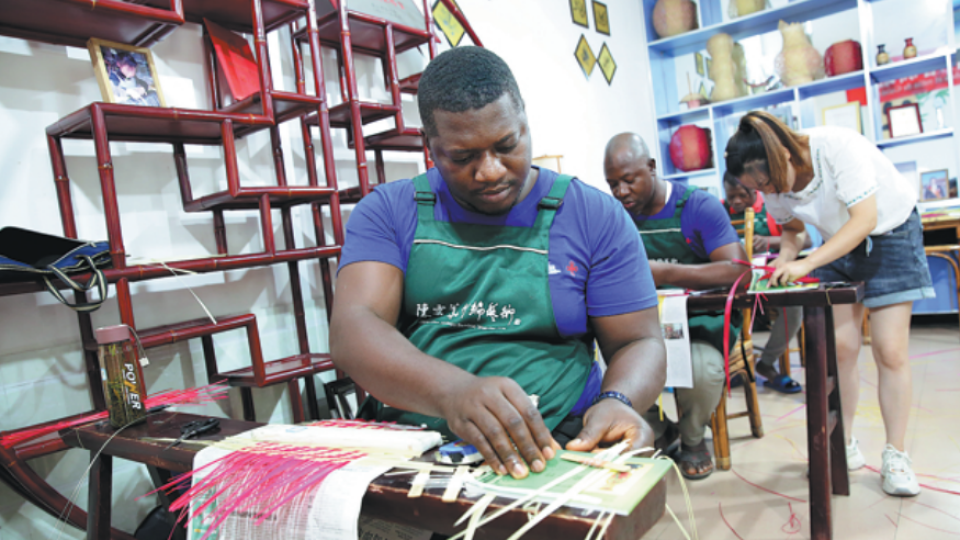August 25, 2023
BEIJING – The International Bamboo and Rattan Organization has been promoting the use of bamboo in India, contributing to sustainable development and economic resilience in the country.
India, a member of INBAR since 1998, has seen the identification of over 130 bamboo species in the country. Recognizing the potential of bamboo as a valuable resource, INBAR has been working toward utilizing this versatile plant in sectors including construction, agriculture tools, furniture, musical instruments, food products and handicrafts.
The organization has been advocating for the use of bamboo as a substitute for single-use plastics. It said that bamboo, with its fast growth, resilience and sustainability, can replace plastics in various applications. This includes in the production of cups, straws, paper and packaging, all of which are recyclable and environmentally friendly.
Last year, the Bamboo as a Substitute for Plastic Initiative was introduced at the High-level Dialogue on Global Development on the sidelines of the 14th BRICS Summit held virtually in Beijing.
By promoting the use of bamboo, INBAR aims to counter the adverse environmental impact caused by single-use plastics. These plastics, made mainly from fossil fuels, pose a significant risk to human health as they degrade into microplastics and contaminate food sources.
Established in 1997, INBAR has played a crucial role in promoting South-South cooperation. It advocates for environmentally sustainable development through the utilization of bamboo and rattan resources. The organization has its headquarters in China and one of its five regional offices in India. Through its commitment to South-South cooperation, INBAR has contributed to fostering collaboration, knowledge-sharing and sustainable development among its member states.
lihongyang@chinadaily.com.cn


